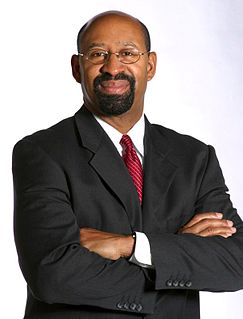A Quote by Viola Davis
My husband [Julius Tennon] and I started a production company. We've already optioned a book and some scripts to do exactly that, to create more complicated, multi-faceted roles for African-Americans, especially African-American females. I think it's important.
Related Quotes
The African-American is often used, and has conspired with the rest of America to be used, as a diversion from America's problems. I wish African-Americans would stop contributing to this sideshow. I also wish all African-Americans would cease to sing and dance just for a generation. I think we provide too much entertainment.
I don't think every African-American or Latino have the same body type, but, yes, that's been one of the excuses ... saying that African-Americans are too muscular or just aren't lean enough. Usually they say, "Oh, they have flat feet so they just don't have the flexibility that it takes to create the line in a point shoe."
One of the things that made the Black Muslim movement grow was its emphasis upon things African. This was the secret to the growth of the Black Muslim movement. African blood, African origin, African culture, African ties. And you'd be surprised - we discovered that deep within the subconscious of the black man in this country, he is still more African than he is American.
Today there are more African-Americans under correctional control, in prison or jail, on probation or parole, than were enslaved in 1850, a decade before the Civil War began. There are millions of African-Americans now cycling in and out of prisons and jails or under correctional control or saddled with criminal records. In major American cities today, more than half of working-age African-American men either are under correctional control or are branded felons, and are thus subject to legalized discrimination for the rest of their lives.
I don't think there are any pure Africans of the African Americans, but the African part of our history was pretty much taken away from us during slavery, so the 60s gave us a chance, because of the civil rights movement, to kind of re-examine and make some sort of formal connection to our African-ness.
African Americans, in particular, saw their cumulative wealth crash. They used to have 10 cents on the dollar of the average white family. That 10 cents on the dollar that the African American family used to have crashed down to 5 cents on the dollar, given the focus of predatory lending on the African American community and the degree to which they were really devastated by the foreclosure crisis. So yeah, I think there is a lot of disappointment out there.




































